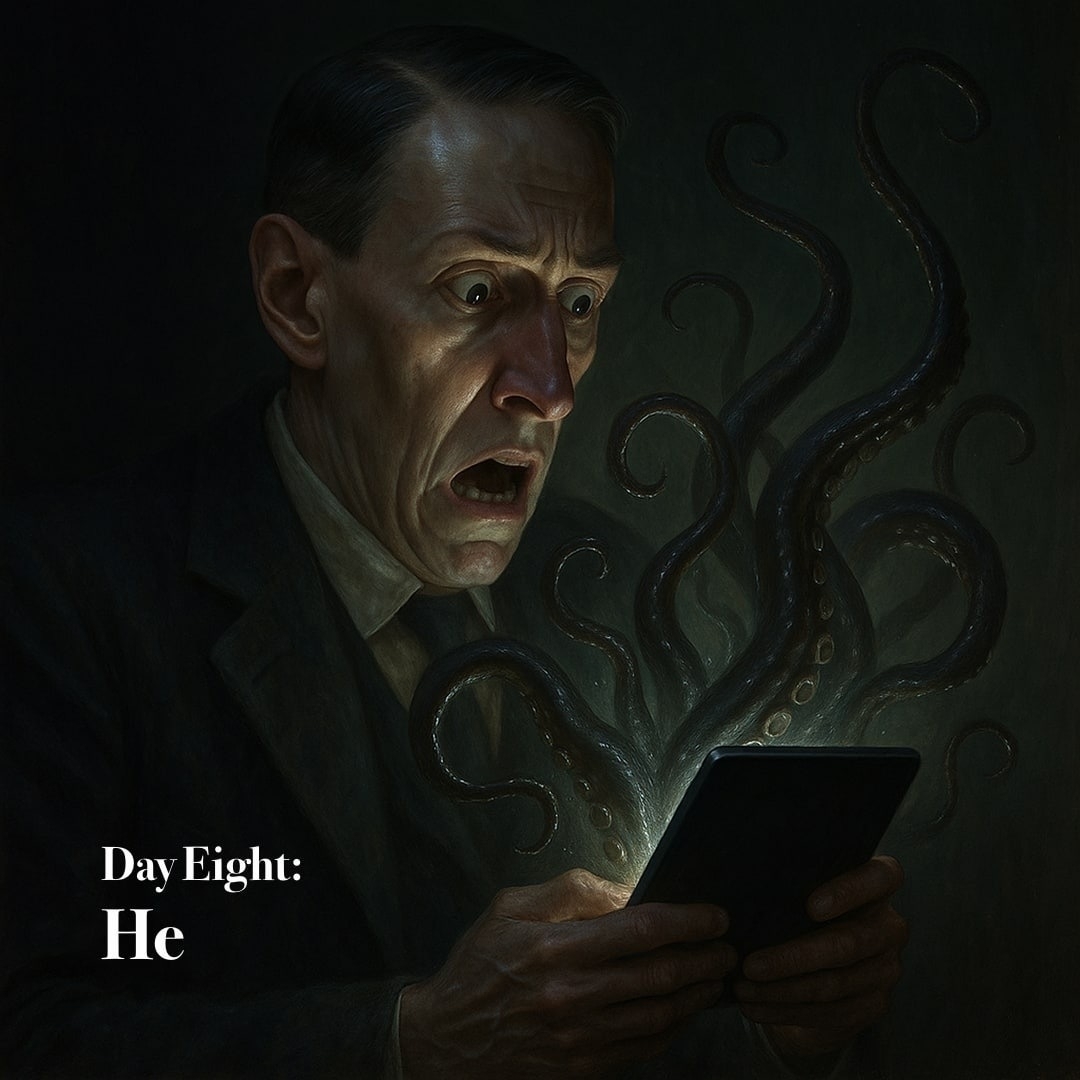He

As I sit before my laptop this morn, a strange chill seeps through my dwelling, bidding me seek the warmth of my long-forgotten slippers. The air bears that faint, ineffable quality, an autumnal breath that speaks of unseen cycles, of decay and remembrance. At last, San Diego has relinquished its unholy summer grip. For too long have I read the arcane chronicles of Howard Phillips Lovecraft beneath a pitiless sun, sweat trickling down my temple as if in mockery of cosmic dread. There is something indecent—profane, even—about perusing those haunted pages while the sky blazes with indifferent daylight.
I find too that my ritual observances of October—those sonic invocations from Bauhaus, Rudimentary Peni, Samhain, and The Misfits—ring oddly hollow when bathed in brightness. Their spectral lamentations demand the gloaming, not the glare; their necrotic rhythms crave the company of long shadows, not the tyranny of the noon sun.
But enough of these seasonal dissonances. Let me turn, as all seekers of unnameable truths must, to the tale before me: “He”. How curious that words such as domdaniel (a fictional cavernous hall at the bottom of the ocean where evil magicians, spirits, and gnomes meet) and crotala (a percussion instrument of ancient Greece and Rome resembling a pair of clappers or castanets) should lure me to my dictionary like some trembling acolyte before a forbidden grimoire. At first, I confess, the narrative moved with the sluggishness of some half-dreamt vision. Yet when the mysterious companion began to speak in that eldritch and anachronistic tongue, ah!, then my spirit quickened. His every syllable seemed laden with the dust of centuries, his voice a cadence from realms beyond mortal chronology. He might have recited the dullest municipal ledger, and still I would have listened, enraptured, as though through him whispered the echo of a time mankind was never meant to recall.
In the labyrinthine glooms of Greenwich Village our nameless wanderer, weary and repelled by the alien immensities of New York, beheld a figure garbed in the antique vesture of the eighteenth century. Drawn into that stranger’s abode, he heard the tale of a colonial squire who had wrung from the native tribes their occult dominion over time and space, only to betray them with the gift of rum, that all might perish and he alone inherit their dread secrets. With a ghastly smile the host unveiled his true identity as that same squire, unaged across centuries, and subjected the hapless narrator to visions of New York’s spectral past and monstrous future, until screams tore his throat and summoned forth the long-slain tribes to avenge themselves upon their murderer.
Lovecraft himself set quill to this vision in 1924, after nocturnal wanderings through Old New York. It was wrought in the bitterness of his brief sojourn there with Sonia Greene, a time of disappointment and loathing which soon drove him back to Providence. The tale’s opening drips with his abhorrence of the city’s teeming multitudes and looming towers, its alien press of life that crushed his spirit. Upon Perry Street he placed his phantom mansion, and in its chambers he wove echoes of Lord Dunsany’s Chronicles of Rodriguez, wherein sorcerous windows reveal wars unbounded by time. Thus was He born: a lament of exile, a confession of revulsion, and a vision of eldritch vengeance amidst the pavements of Manhattan.